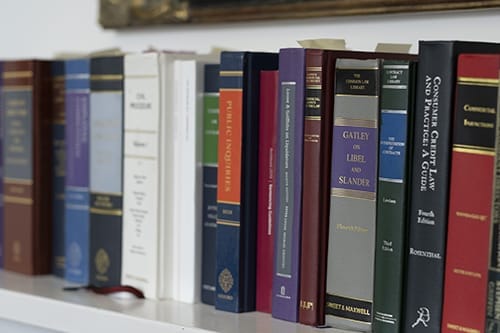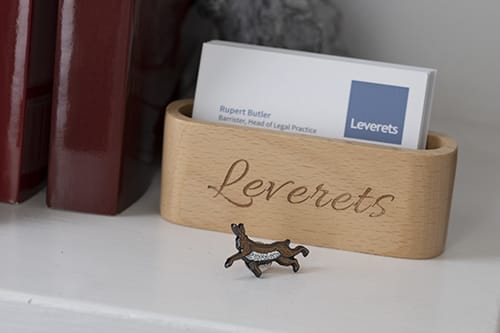What is the Duty of Disclosure in Civil Litigation?
At the conclusion of a civil dispute, the presiding judge will determine the case based upon the evidence provided to the court. Much of this evidence (in addition to witness testimony) will be in the form of documentation submitted both before and during the trial through the process of disclosure. It’s worth mentioning that following pre-trial disclosure parties may, based upon the strength of the evidence and therefore their respective cases, negotiate a settlement.
Disclosure is a vital component in ensuring the best possible outcome in any civil litigation process, and non-compliance can not only negatively affect the outcome of a case, but carry significant consequences.
Leverets’ solicitor Owen Vanstone-Hallam explains why it’s important for clients entering civil litigation proceedings to understand the duty of disclosure, how the procedure works, and the consequence of getting it wrong.
What is the Duty of Disclosure?
Disclosure is the process by which each party involved in litigation provides all relevant documentation to the opposing party.
The process for proceedings in civil litigation is governed by the Civil Procedure Rules (CPR), i.e. rules that govern how parties and the courts conduct litigation. CPR Part 31 sets out the rules in relation to disclosure and inspection of evidence.
Documentation refers to all relevant data and information that supports or contradicts a party’s case or version of events. Crucially, this therefore requires both parties to disclose documents that could be potentially damaging to their own case. A relevant document may only be withheld in limited circumstances – where it is “privileged” because it contains legal advice or is “without prejudice” correspondence aimed at settling a dispute. Parts of documents may only be redacted if they are irrelevant and confidential or privileged.
Documents include paper and electronic documents and records, emails, letters, photographs and videos, audio recordings, text messages, social media posts and messages, the metadata attached to electronic documents, and hard copy notes, including annotation on printed materials. They can be physical documents or held electronically on devices, servers or hosted by third-party cloud providers.
The parties and the court debate and decide upon the scope of the review required and relevant issues which the parties need to look out for. This can be a highly intrusive process, and can require the time-consuming and costly process of harvesting large amounts of data from a wide range of people. The court places a number of standard duties on parties:
The stages of standard disclosure
- The first stage of standard disclosure requires that:
- Parties identify and preserve relevant documents and conduct a reasonable search for documents, taking into account the number of documents involved, the nature and complexity of proceedings, the ease and expense of retrieval, and the significance of the document.
- The next stage, once documents have been obtained, requires parties to:
- compile a list of all documents they are obliged to disclose (i.e. those which are in, or have been in, their control), and any documents which they will not allow inspection of for the reasons listed above).
- Take reasonable efforts to avoid disclosing documents which have no relevance to the proceedings – i.e. parties cannot overwhelm the other side with mountains of documents just to find the issues of relevance.
- Sign a court-prescribed disclosure statement confirming the above and agreeing to disclose any other documents that come to light during the process of litigation.
- Once the act of disclosure has taken place, i.e. when the lists have been exchanged, parties are able to request inspection of documents. The court requires that parties are cooperative and efficient:
- Once a request has been received parties must allow inspection to take place within 7 days
- Following inspection, parties can ask for copies of the document(s) in question and should expect to receive these within 7 days.
- Finally, parties must comply with the rules on continuation of disclosure:
- if a new document comes to light at any point in the proceedings, parties must notify the Court and each other straightaway of its existence and availability for inspection
- comply with court requests to search for additional documents
At every stage of the process, all documents should be reviewed by legal representatives, who will provide expert evaluation to determine whether they should be disclosed. Depending on the nature of the case this could mean the advice of a single lawyer, a whole team of specialist document reviewers, or the use of LegalTech harnessing artificial intelligence to sift through vast amounts of documentation.
What happens if you fail to comply?
Disclosure is an extremely important part of the litigation process and the rules in relation to it must be obeyed. Breaches of the rules are a serious matter—at best they can involve an onerous interrogation process requiring additional searches, and at worse can give rise to “adverse inferences” as to the offending parties reliability, which can be highly-damaging to their case.
At the extreme end of the scale, a case can be thrown out altogether! It’s therefore wise for all parties involved in civil litigation proceedings to seek competent advice from the outset.
Best first actions when a claim arises
When you become aware of the need to make a claim, or that another party has made a claim against you, it’s important from that point forward you do not create any new documents relating to the dispute, ask external parties to send you documents, delete or destroy documents, or do anything that could damage metadata.
You should also set up document preservation and deletion process and use the opportunity to consider the nature of the data you hold, and how long you hold it for, in accordance with UK GDPR regulations. It’s vital these processes are formally documented should you be questioned by the court.
Your best first action, however, is always to seek legal advice as early as possible.
Leverets can guide you through the process from start to finish – from document collection, and review, to disclosure and inspection, and presentation at trial.
Our uniquely combined team of solicitors and barristers employ technology optimisation, forensic optimisation and intellectual rigour to ensure you comply with the duty of disclosure no matter the nature or complexity of the case, ensuring we achieve the most effective outcome whilst delivering true value for money.







